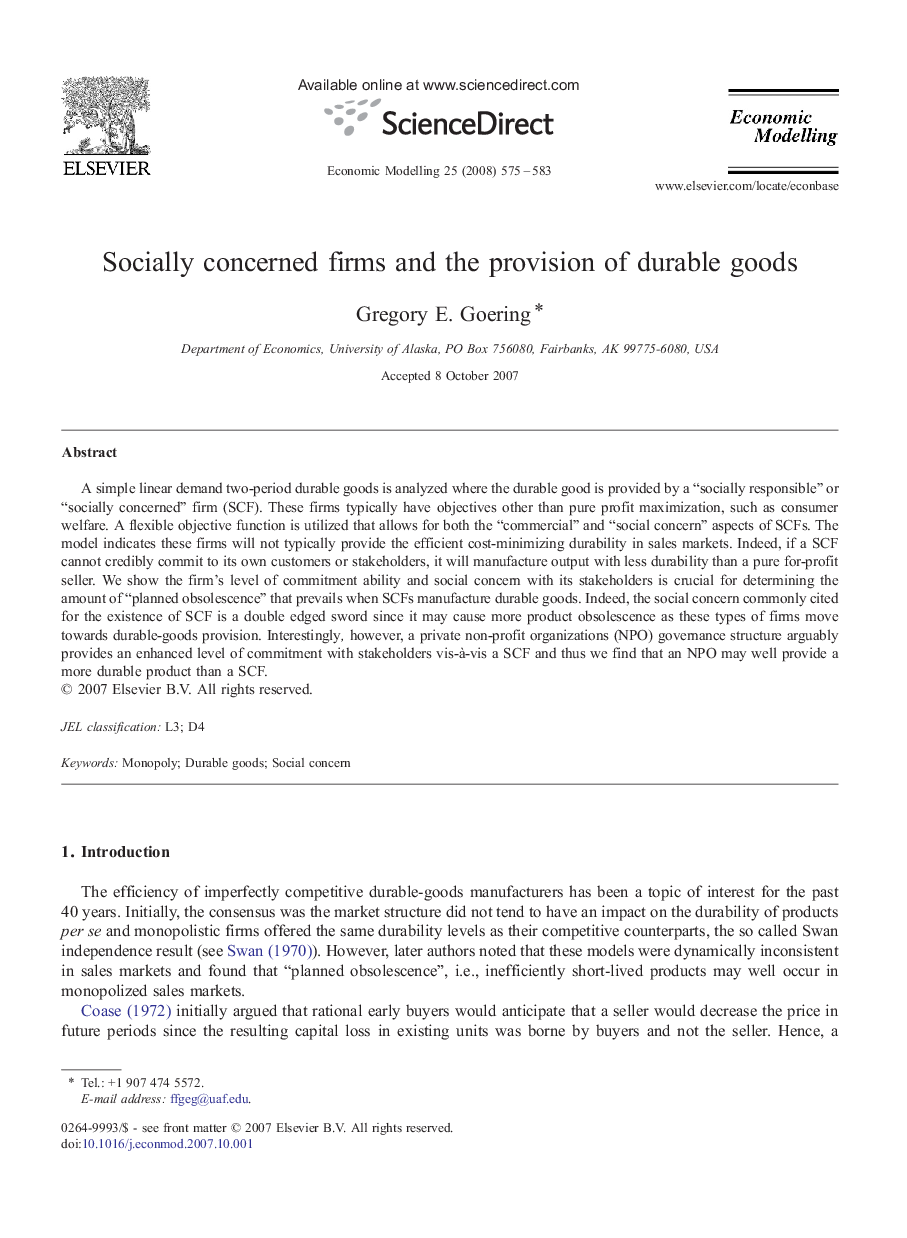| Article ID | Journal | Published Year | Pages | File Type |
|---|---|---|---|---|
| 5055996 | Economic Modelling | 2008 | 9 Pages |
Abstract
A simple linear demand two-period durable goods is analyzed where the durable good is provided by a “socially responsible” or “socially concerned” firm (SCF). These firms typically have objectives other than pure profit maximization, such as consumer welfare. A flexible objective function is utilized that allows for both the “commercial” and “social concern” aspects of SCFs. The model indicates these firms will not typically provide the efficient cost-minimizing durability in sales markets. Indeed, if a SCF cannot credibly commit to its own customers or stakeholders, it will manufacture output with less durability than a pure for-profit seller. We show the firm's level of commitment ability and social concern with its stakeholders is crucial for determining the amount of “planned obsolescence” that prevails when SCFs manufacture durable goods. Indeed, the social concern commonly cited for the existence of SCF is a double edged sword since it may cause more product obsolescence as these types of firms move towards durable-goods provision. Interestingly, however, a private non-profit organizations (NPO) governance structure arguably provides an enhanced level of commitment with stakeholders vis-Ã -vis a SCF and thus we find that an NPO may well provide a more durable product than a SCF.
Keywords
Related Topics
Social Sciences and Humanities
Economics, Econometrics and Finance
Economics and Econometrics
Authors
Gregory E. Goering,
